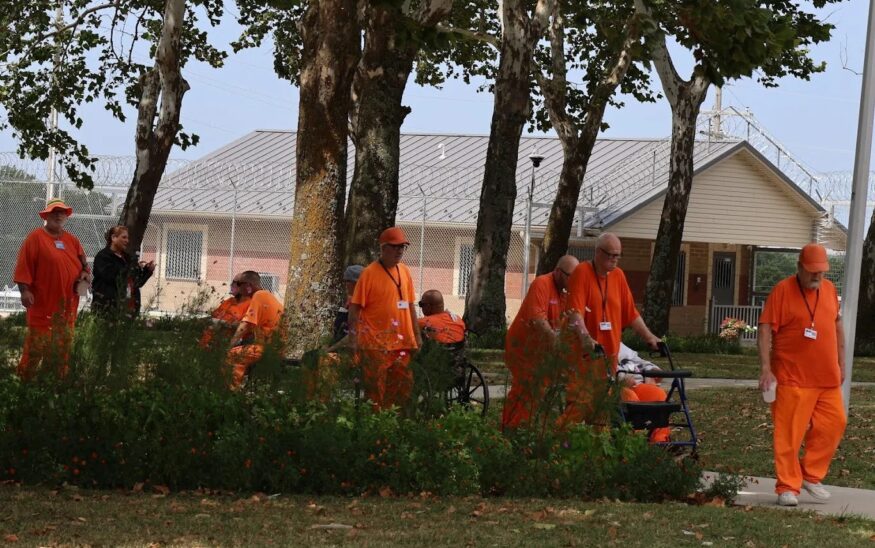Politics
Oklahoma Parole Board Seeks Legal Clarity on Medical Parole Authority

In a significant move, the Oklahoma Pardon and Parole Board has unanimously requested a legal opinion regarding the authority to refer inmates for medical parole. This decision follows the denial of medical parole for James Havens, a 73-year-old inmate diagnosed with prostate cancer. The board’s inquiry, sent to the Attorney General’s Office on October 7, 2023, seeks clarification on whether the board’s executive director can independently place an inmate on the medical parole docket.
The request arises amid a dispute between the Oklahoma Department of Corrections (DOC) and the parole board concerning the interpretation of a statute updated in 2021. The DOC believes that its director holds the ultimate authority over medical parole referrals, a view that has hindered Havens’ potential release. Although prison medical staff recommended Havens for medical parole in June, DOC officials rejected the application, citing procedural concerns.
Havens, who has been hospitalized off-site at taxpayer expense since February, was convicted of first-degree murder in 2008 and is eligible for parole under state law. His case has become emblematic of the broader challenges faced by an aging prison population in Oklahoma, where medical costs continue to rise. As of December 31, 2024, 16.6% of the state’s prison population will be aged 55 or older, a sharp increase from 7.68% in 2009. The DOC reported that annual off-site medical expenses for prisoners aged 60 and above now exceed $8 million.
During a meeting on October 6, 2023, the board’s executive director, Tom Bates, noted that the legal request was prompted by Havens’ situation but reflects a broader need for clarity. Bates expressed concerns that the board’s unilateral interpretation of the law could lead to conflicting views from the DOC and the governor’s office. He emphasized that the ongoing ambiguity exposes the state to potential litigation risks.
Should the attorney general’s office endorse a more expansive interpretation of the statute, the board will need to develop new protocols for medical parole referrals. This could allow referrals to be made directly by the agency’s chief medical officer, bypassing the director altogether.
The DOC has not publicly commented on the board’s request, and the governor’s office, which ultimately decides on parole for violent offenders, did not respond to inquiries. Legal representatives for Havens, Christopher Garinger and Aaron Easton, assert that the DOC is overstepping its authority by controlling medical parole decisions solely based on its employment of prison doctors. They argue that the financial implications for the state are considerable and that the law supports a more efficient process for medical parole applications.
The implications of this legal opinion extend beyond Havens. The capacity to grant medical parole could significantly affect hundreds of elderly and medically vulnerable inmates. Criminal justice reform advocates have pointed to studies indicating a near-zero recidivism rate for inmates aged 65 and over. Yet, the reluctance to release those convicted of serious offenses remains a barrier to reform.
Since November 2021, only six inmates have been granted medical parole, a stark decline from 30 in the three years prior. The lengthy bureaucratic process complicates applications for medical parole, particularly for those without legal assistance.
As the state awaits the attorney general’s opinion, the timeline for a response remains uncertain. Past instances suggest that the office can provide expedited opinions when necessary. For example, Attorney General Gentner Drummond delivered a ruling on the legality of relocating Oklahoma Highway Patrol officers from urban areas within seven weeks.
The outcome of this request for legal clarity could have real-world implications for individuals like Havens and many others in a similar situation. As Garinger noted, “This is a matter of general law, not specific to James Havens, but it will have significant implications for our client and many others.”
The ongoing debate surrounding medical parole in Oklahoma highlights the complexities of balancing justice, rehabilitation, and the financial responsibilities of the state. As discussions continue, the future of medical parole eligibility and procedures remains a critical issue for both the Pardon and Parole Board and the Department of Corrections.
-

 Science1 week ago
Science1 week agoResearchers Challenge 200-Year-Old Physics Principle with Atomic Engines
-

 Politics7 days ago
Politics7 days agoNHP Foundation Secures Land for 158 Affordable Apartments in Denver
-

 Health1 week ago
Health1 week agoNeuroscientist Advocates for Flag Football Until Age 14
-

 Lifestyle1 week ago
Lifestyle1 week agoLongtime Friends Face Heartbreak After Loss and Isolation
-

 World1 week ago
World1 week agoTroops to Enjoy Buffalo Chicken, Thai Curry in 2026 MREs
-

 Health7 days ago
Health7 days agoFDA Launches Fast-Track Review for Nine Innovative Therapies
-

 Top Stories1 week ago
Top Stories1 week agoUnforgettable Moments: The Best Victoria’s Secret Performances
-

 World1 week ago
World1 week agoGlobal Military Spending: Air Forces Ranked by Budget and Capability
-

 Politics1 week ago
Politics1 week agoIsraeli Air Strikes in Lebanon Kill One, Wound Seven Amid Tensions
-

 Lifestyle1 week ago
Lifestyle1 week agoJump for a Cause: San Clemente Pier Hosts Fundraiser Event
-

 Politics1 week ago
Politics1 week agoMassachusetts Lawmakers Resist Audit After Voter Mandate
-

 Business1 week ago
Business1 week agoMaine Housing Inventory Surges to Post-Pandemic High









